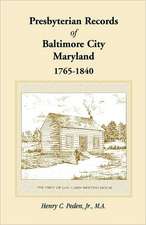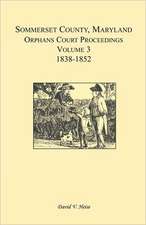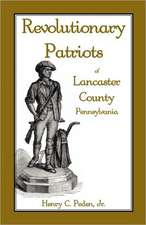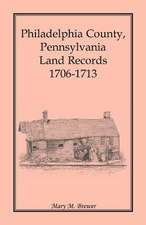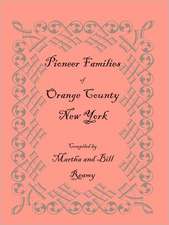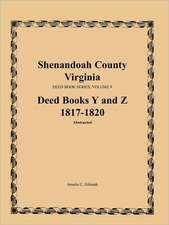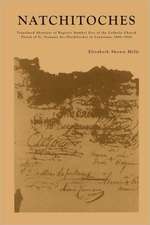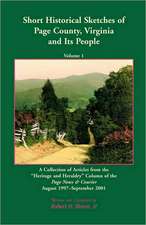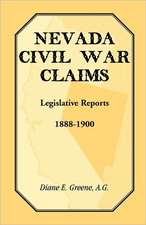The First New Chronicle and Good Government, Abridged
Autor Felipe Guaman Poma De Ayala David Fryeen Limba Engleză Paperback – 15 noi 2006
| Toate formatele și edițiile | Preț | Express |
|---|---|---|
| Paperback (1) | 137.01 lei 3-5 săpt. | |
| Hackett Publishing Company – 15 noi 2006 | 137.01 lei 3-5 săpt. | |
| Hardback (1) | 330.17 lei 3-5 săpt. | |
| Hackett Publishing Company – 15 noi 2006 | 330.17 lei 3-5 săpt. |
Preț: 137.01 lei
Preț vechi: 146.81 lei
-7% Nou
Puncte Express: 206
Preț estimativ în valută:
26.22€ • 28.03$ • 21.86£
26.22€ • 28.03$ • 21.86£
Carte disponibilă
Livrare economică 28 martie-11 aprilie
Preluare comenzi: 021 569.72.76
Specificații
ISBN-13: 9780872208414
ISBN-10: 0872208419
Pagini: 384
Ilustrații: b/w illus
Dimensiuni: 9 x 215 x 22 mm
Greutate: 0.49 kg
Ediția:Abridged ed.
Editura: Hackett Publishing Company
Colecția Hackett Publishing Company, Inc (US)
ISBN-10: 0872208419
Pagini: 384
Ilustrații: b/w illus
Dimensiuni: 9 x 215 x 22 mm
Greutate: 0.49 kg
Ediția:Abridged ed.
Editura: Hackett Publishing Company
Colecția Hackett Publishing Company, Inc (US)
Recenzii
David Frye achieves a tour de force in rendering the chronicle comprehensible to a large audience without diminishing its richness as an historical source. The different sections of this book respect the chronicle's original composition and translate Guaman Poma's main argument with accuracy. . . . Frye's translation . . . offers a vivid portrayal of Peru's colonial society with its different strata, revealing the intricate nature of indigeneity and gender in the Andes following the Spanish conquest. . . . [T]he English text is fluid throughout. This fluidity, however, neither stifles Guaman Poma's voice nor tones down his zeal in condemning the brutality and inequity of the colonial system. Frye's achievement undoubtedly leans on his comprehension of the literary and historical context that surrounds the mestizo author, a context he summarizes in the introduction. Punctuated by knowledgeable annotations throughout the pages and complemented by a glossary of Pre-Hispanic and colonial terms, this translation proves to be a valuable contribution for introducing students to the Andean society of the colonial era. -- Bulletin of Latin American Research
David Frye is a professional anthropologist and skilled translator. [This book] includes an Introduction which provides most of the information needed to understand Guaman Poma de Ayala's text and Frye's translation thereof, a map, a glossary, an index, and generally helpful notes that demonstrate a solid command of the relevant primary and secondary literature. The sections of the lengthy manuscript . . . selected for translation are representative of the work as a whole. . . . Frye also includes some of Guaman Poma de Ayala's several hundred black-and-white drawings, which should be viewed as an integral, not merely supplementary, part of his work. . . . [T]his is a welcome translation, all the more so because it is well done. . . . Frye has been painstaking in his explanation of terminology. I recommend this work for courses on Latin America during the colonial period, or more specifically the Central Andes (i.e., Ecuador, Peru, and Bolivia). -- Hispanic American Historical Review
Generations of scholars have grappled with the challenge of interpreting the person and project of the native Andean chronicler Felipe Guaman Poma de Ayala. This abridged English translation of Guaman Poma's Nueva cornica y buen gobierno represents at least two accomplishments. First, it brings this person and project to many readers for the first time. And, second, the words allow for new encounters with the possibilities in this text. These words have a piercing directness that cannot be denied, and they will jar even seasoned scholars, who thought they knew Guaman Poma. Frye has made judicious choices about inclusion, he has consulted widely, he has not shied away from the transformations that were part of being authentically native Andean in the late sixteenth and early seventeenth centuries, and he has wisely refused to fill the telling silences left by the author himself. Most significantly of all, for students and teachers, is that--in as much as it is possible--he has allowed Felipe Guaman Poma to speak for himself. --Kenneth Mills, University of Toronto
David Frye is a professional anthropologist and skilled translator. [This book] includes an Introduction which provides most of the information needed to understand Guaman Poma de Ayala's text and Frye's translation thereof, a map, a glossary, an index, and generally helpful notes that demonstrate a solid command of the relevant primary and secondary literature. The sections of the lengthy manuscript . . . selected for translation are representative of the work as a whole. . . . Frye also includes some of Guaman Poma de Ayala's several hundred black-and-white drawings, which should be viewed as an integral, not merely supplementary, part of his work. . . . [T]his is a welcome translation, all the more so because it is well done. . . . Frye has been painstaking in his explanation of terminology. I recommend this work for courses on Latin America during the colonial period, or more specifically the Central Andes (i.e., Ecuador, Peru, and Bolivia). -- Hispanic American Historical Review
Generations of scholars have grappled with the challenge of interpreting the person and project of the native Andean chronicler Felipe Guaman Poma de Ayala. This abridged English translation of Guaman Poma's Nueva cornica y buen gobierno represents at least two accomplishments. First, it brings this person and project to many readers for the first time. And, second, the words allow for new encounters with the possibilities in this text. These words have a piercing directness that cannot be denied, and they will jar even seasoned scholars, who thought they knew Guaman Poma. Frye has made judicious choices about inclusion, he has consulted widely, he has not shied away from the transformations that were part of being authentically native Andean in the late sixteenth and early seventeenth centuries, and he has wisely refused to fill the telling silences left by the author himself. Most significantly of all, for students and teachers, is that--in as much as it is possible--he has allowed Felipe Guaman Poma to speak for himself. --Kenneth Mills, University of Toronto
Cuprins
Introduction; The First New Chronicle and Good Government; The Ages of the World; The Pontiff's Throne; The Ages of the Indians; The Fifth Age of Indians: The Incas; The Conquest of This Kingdom; Good Government; Conquest Society in the Andes; Andean Society Under Spanish Rule; Conclusions and Appendices; Glossary; Index.

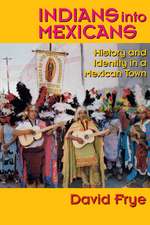
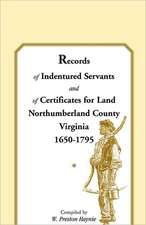

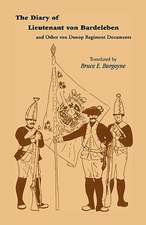






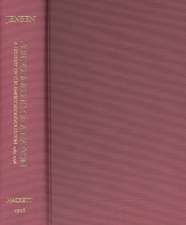

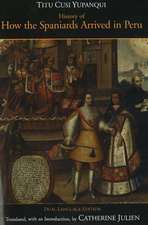
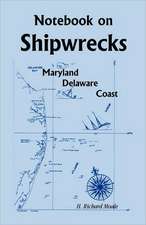

![Newspaper Abstracts of Frederick County [Maryland], 1811-1815](https://i3.books-express.ro/bt/9781585492336/newspaper-abstracts-of-frederick-county-maryland-1811-1815.jpg)
